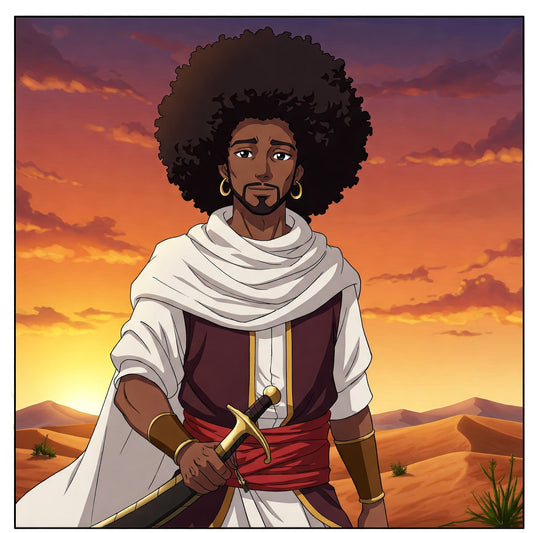Antarah ibn Shaddad's life, unfolding in the harsh landscapes of 6th-century Arabia, is a powerful narrative of resilience and triumph. Born into a society rigidly stratified by lineage, Antarah's mixed heritage—his father a respected Arab warrior, his mother an Ethiopian slave—cast him into the shadows of his tribe, the Banu Abs. He endured the sting of social rejection, initially treated as a slave and denied paternal recognition. This crucible of adversity, however, forged a spirit of unyielding determination within him.
The social order of pre-Islamic Arabia placed immense value on tribal affiliation and purity of blood. Antarah's position, therefore, presented a profound challenge to these established norms. He found himself perpetually striving to prove his worth, to earn the respect that birth had denied him. This relentless pursuit manifested in his exceptional martial skills. In times of tribal conflict, Antarah's bravery and combat prowess became legendary. A pivotal moment arrived when his tribe faced a dire threat, forcing his father, Shaddad, to acknowledge his son's strength. Antarah's defiant response, refusing to fight until recognized, became an iconic declaration of his inherent dignity. This act of courage, coupled with his subsequent battlefield heroics, secured his freedom and acceptance within the tribe.
Beyond the clash of swords, Antarah's soul found expression in poetry. His verses, rich with vivid imagery and emotional depth, serve as a direct window into his inner world. He chronicled the ferocity of battle, the pangs of unrequited love, and the enduring struggle for social acceptance. His inclusion in the Mu'allaqat, a collection of the most revered pre-Islamic Arabic poems, stands as a testament to his poetic genius. These poems are more than just artistic expressions; they are historical records, revealing the values and concerns of a society on the cusp of change, highlighting bravery, honor, and loyalty.
The enduring romance between Antarah and his cousin, Abla, forms a central thread in his epic story. Their love, often thwarted by social barriers and Abla's family's resistance, became a symbol of passionate devotion. The tales of his daring exploits to win her hand have resonated through generations, solidifying his place as a romantic hero. His love for Abla, and the obstacles that they faced, have been told and retold, becoming a very important part of Arabic literature.
Antarah ibn Shaddad's legacy transcends the boundaries of his time. He remains a symbol of resilience, a testament to the power of individual merit to overcome social prejudice. The "Romance of Antar," a sprawling epic that has been passed down through oral tradition, further immortalizes his story. His influence has permeated various forms of artistic expression, from literature to musical compositions. In essence, Antarah's life is a powerful reminder that true greatness is not defined by birth, but by the courage to defy limitations and the artistry to express the human spirit.






